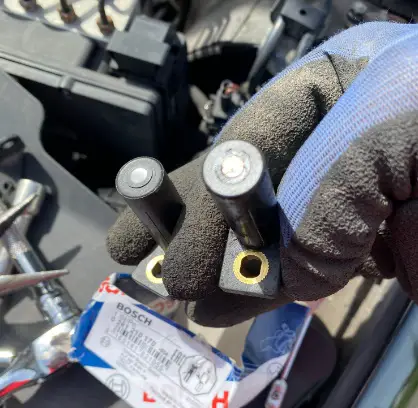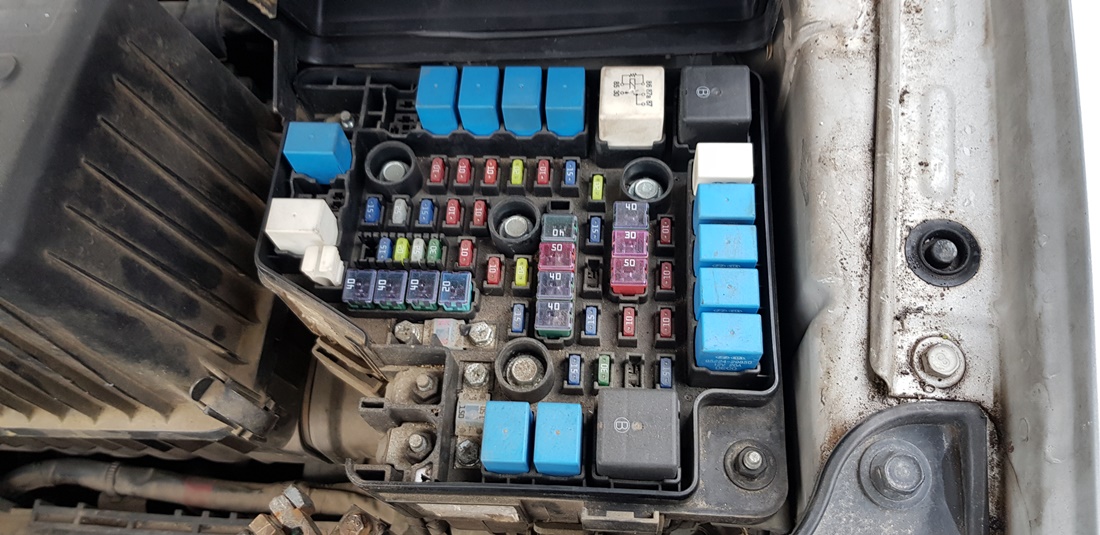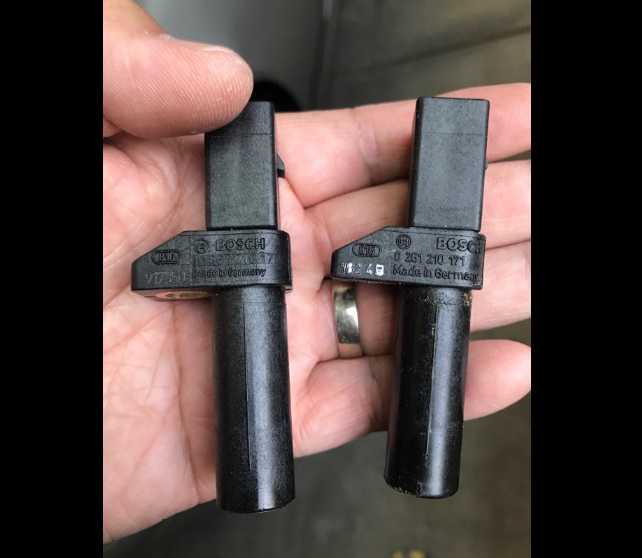On most early 2000s general motors vehicles, including Chevy Avalanche, the AC loses calibration if you have disconnected the battery or replaced any heater control component like an actuator.
So, if you have had any other issues and you simply had to disconnect the battery, you can expect some issues with the AC.
However, before you take your Chevy Avalanche to a mechanic, try to reset the AC first. The procedure is pretty simple and worth trying. This works for most GM vehicles, including the Chevy Avalanche.
- Key Takeaway
- How Do You Reset The AC On a Chevy Avalanche
- FAQs
- Q: Why would I need to reset the AC on my Chevy Avalanche?
- Q: How often should I reset the AC on my Chevy Avalanche?
- Q: Can I reset the AC on my Chevy Avalanche myself?
- Q: Will resetting the AC on my Chevy Avalanche erase all the settings?
- Q: How long should I leave the negative terminal cable disconnected when resetting the AC?
- Q: What other troubleshooting steps should I try before resetting the AC on my Chevy Avalanche?
- Q: Can resetting the AC on a Chevy Avalanche fix a refrigerant leak?
- Q: Are there any risks associated with resetting the AC on a Chevy Avalanche?
- Q: Can resetting the AC on my Chevy Avalanche cause any damage to the vehicle’s electrical system?
- In Conclusion
Key Takeaway
- To reset the AC on a Chevy Avalanche, disconnect the battery for about 10 minutes, then reconnect it, which should reset the AC system and clear any minor glitches.
How Do You Reset The AC On a Chevy Avalanche

- Turn the key on
- Turn the auto control on the AC
- Turn the ignition off
- Locate the fuse box
- Locate and remove the HVAC battery fuse
- Wait for sixty seconds and install the fuse
- Start the engine
- Shut the engine off for ten seconds and restart it
- Test the AC
The AC reset on a Chevy Avalanche takes about five minutes out of your time. It is definitely worth trying before you take your vehicle to a repair shop. Here is how to reset the AC on a Chevy Avalanche, and most GM vehicles.
The AC calibration of the vehicle will take about five minutes in total and will require the vehicle to run for about two minutes. So, make sure that you park your vehicle outside, or keep the garage doors open.
1. Turn the key on

The first step is to turn the key on. When you do this, the AC display will show a random temperature. It is usually at 60 degrees Fahrenheit. Regardless of what the AC display is showing, move on to the next step.
2. Turn the auto control on the AC

This step is very important. You need to set the AC on auto control. When the AC is set on auto control, the system takes over and automatically controls the cabin temperature, airflow, and overall air distribution inside the cabin. Depending on what’s wrong with your AC, it might blow hot air, not blow at all, or partially blow some cold air.
If it’s blowing too hot, you can roll down the windows or open the doors.
3. Turn the ignition off
Once you set up the AC on auto control, turn the ignition off. Make sure that the AC stays on auto control. This is because the next time you start the engine, the AC will automatically start. This is a vital part of the calibration process.
4. Locate the fuse box

The next step is to locate the fuse box. On most GM vehicles, including the Chevy Avalanche, the fuse box is located under the hood, on the driver’s side. It is a plastic box that might or might not have the ”Fuse and Relay box” written on top of it. Remove the cover of the fuse box and store it safely.
5. Locate and remove the HVAC battery fuse

At first, it might look confusing. But, trust me, it really isn’t. Once you remove the cover, you will notice that there are markings on the inside of the fuse box cover.
It says which fuse is for what and you really can’t go wrong. At this point, you need to locate the HVAC battery fuse. It is a 10 amp fuse with red color.
Remove it and inspect it. If the fuse is blown, it is a good time to replace it with a new one. But, if it’s good just remove it and store it safely.
Fuses are pretty cheap, so it is always a good idea to have a brand-new one at hand.
6. Wait for sixty seconds and install the fuse

Once you remove the HVAC battery fuse, wait for about sixty seconds. At this time, the HVAC ECM which is the brain of the AC will wipe off the memory.
If your AC is not blowing as it should, it means that the ECM has the wrong data stored. This is why calibration is needed. Once the old data is wiped off, the next time you start your vehicle, the AC will be restored back to factory mode.
7. Start the engine

When you start the engine, the AC auto system should come on at 74 degrees Fahrenheit. This temperature is set as factory and it means that the AC is self-resetting.
At this point, the actuators are going to open and close and blow air through the dash vents, defrost, and floor. This is also a great time to check how each vent is performing.
It is very important that you do not touch anything for about sixty seconds.
8. Shut the engine off for ten seconds and restart it
Once the engine has been running for a minute or so, shut the engine off. The engine should be shut off between ten and thirty seconds only. Do not go over thirty seconds. So, about ten to fifteen seconds in, start the engine back on.
There isn’t really information on why you should only keep the vehicle shut off between ten and thirty seconds. I guess that after thirty seconds, the HVAC ECM will pick up the last data(the wrong one) and your AC will again perform poorly.
9. Test the AC
Start the vehicle and test the AC. If the AC on your Chevy Avalanche or any GM vehicle needs calibration, at this point, it should be fixed. Now is a good time to test the AC. Try different vents, defrost, and floor and see how it works. Test the fan speed as well says Chevy Avalanche Forum.
FAQs
Q: Why would I need to reset the AC on my Chevy Avalanche?
A: There are several reasons why you might need to reset the AC on your Chevy Avalanche. Some common reasons include: – The AC system is not working properly and needs to be reset to clear any error codes or malfunctions. – The AC system has been disconnected or replaced, and a reset is required to initialize the new components. – The AC system has undergone repairs or maintenance and needs to be reset to ensure proper functioning.
Q: How often should I reset the AC on my Chevy Avalanche?
A: In general, you do not need to reset the AC on your Chevy Avalanche unless there is a specific issue with the system. If the AC is not working properly or showing any signs of malfunction, such as lack of cooling or unusual noises, you may consider resetting the AC. Otherwise, regular maintenance and servicing should keep the AC system in good working condition without the need for frequent resets.
Q: Can I reset the AC on my Chevy Avalanche myself?
A: Yes, you can reset the AC on your Chevy Avalanche yourself. The process typically involves disconnecting the negative terminal cable from the battery for a certain period of time and then reconnecting it. However, it is important to note that resetting the AC may not always solve the underlying issue causing the malfunction. If the AC continues to have problems after a reset, it is recommended to have it inspected and repaired by a professional mechanic.
Q: Will resetting the AC on my Chevy Avalanche erase all the settings?
A: Yes, resetting the AC on your Chevy Avalanche will erase all the settings. When you disconnect the negative terminal cable from the battery, the AC system loses power and is reset to its default settings. You will need to reconfigure any custom settings or presets after the reset.
Q: How long should I leave the negative terminal cable disconnected when resetting the AC?
A: It is generally recommended to leave the negative terminal cable disconnected for at least 15 minutes when resetting the AC on a Chevy Avalanche. This duration allows any residual power and memory in the system to be fully discharged. However, you can leave it disconnected for a longer duration if desired.
Q: What other troubleshooting steps should I try before resetting the AC on my Chevy Avalanche?
A: Before resorting to resetting the AC on your Chevy Avalanche, you can try the following troubleshooting steps: – Check the AC fuse and replace it if necessary. – Inspect the AC system for any visible signs of damage or leaks. – Ensure that the AC controls and settings are configured correctly. – Check the refrigerant levels and recharge if low. – Verify that the compressor and other components are functioning properly. – Consult the vehicle’s user manual for specific troubleshooting guidance.
Q: Can resetting the AC on a Chevy Avalanche fix a refrigerant leak?
A: No, resetting the AC on a Chevy Avalanche cannot fix a refrigerant leak. Resetting the AC system only clears error codes and resets the system’s settings. If you suspect a refrigerant leak in the AC system, it is important to have it properly diagnosed and repaired by a qualified mechanic. Continuing to use the AC with a refrigerant leak can cause further damage and may lead to more expensive repairs.
Q: Are there any risks associated with resetting the AC on a Chevy Avalanche?
A: Resetting the AC on a Chevy Avalanche generally does not carry any significant risks. However, it is important to follow the correct procedure and ensure that all safety precautions are taken. When disconnecting the negative terminal cable from the battery, make sure to use the appropriate tools and handle the battery with care. Additionally, if the AC system continues to have issues after a reset, it is recommended to consult a professional mechanic for further inspection and repairs.
Q: Can resetting the AC on my Chevy Avalanche cause any damage to the vehicle’s electrical system?
A: Resetting the AC on your Chevy Avalanche should not cause any damage to the vehicle’s electrical system if done correctly. However, it is always a good idea to follow the proper procedure and take necessary precautions when working with the battery and electrical components. If you are uncertain or uncomfortable performing the reset yourself, it is advisable to seek assistance from a professional mechanic.
In Conclusion
In conclusion, resetting the AC on a Chevy Avalanche is a straightforward process that involves disconnecting the battery for roughly 10 minutes and then reconnecting it.
This action resets the AC system and can help to clear any minor glitches or issues.
However, if problems persist after the reset, it’s advisable to consult with a professional mechanic or service center to avoid causing further damage to the vehicle’s AC system.




